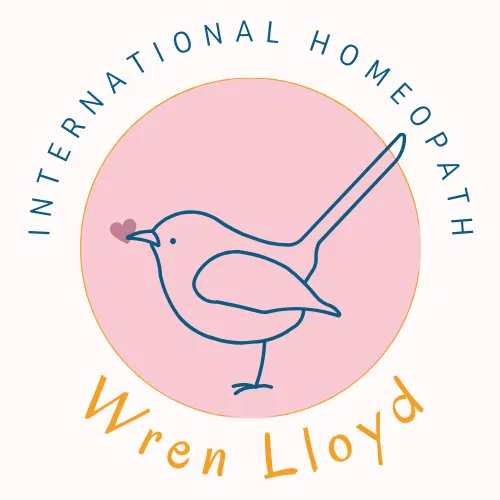
3.5 Times More American Women Than British Women Have Hysterectomies & What To Do instead!
I’m aware of how effective homeopathy is in resolving many women’s uterine and ovary disorders, so I find myself astounded by the sheer number of women still losing their reproductive organs to hysterectomy, especially in the USA. Please, share this post to a woman you know who is suffering.
Stay tuned for a series on treating fibroids, endometriosis, PCOS, menstrual pain, prolapse and chronic pelvic pain syndromes with homeopathy.
Come and join my membership community
and / or
Book in with my team

Shoutout to Joel Muniz on Unsplash.
Trends in Hysterectomy Rates in the UK and USA.
Hysterectomy, (surgical removal of the uterus) having long been one of the most common surgeries performed on women, has been in steady decline in the past decade, in both the U.K. and the USA.
3.5 Times More American Women Than British Women Have A Hysterectomy!

American women are still nearly 3.5 times as likely to have a hysterectomy as British women! And the decline in the use of hysterectomy in the USA is lagging behind the decline in the U.K.
2014: Women in the USA were approximately 3.09 times more likely to have a hysterectomy than women in the U.K.
2023: This ratio increased to approximately 3.47 times.

A shoutout to Tamara Bellis @ Unsplash
In This Article …
I look at trends in hysterectomy rates, the reasons behind the decrease, and the primary conditions leading to hysterectomy.
Then I’ll also be extending into articles that address the primary conditions using homeopathy!
Hysterectomy Trends: A Decade in Review
UK Hysterectomy Trends
The number of hysterectomies has steadily decreased from approximately 39,000 in 2014 to around 30,000 in 2023.
USA Hysterectomy Trends
The number of hysterectomies has shown a downward trend, from about 600,000 in 2014 to approximately 510,000 in 2023.
Reasons for the Decline in Hysterectomy Rates
1. Advancements in Medical Treatments
medications,
hormone therapy,
and minimally invasive procedures such as uterine artery embolisation and endometrial ablation.
2. Improved Diagnostic Techniques
Better diagnostic tools and techniques enable earlier detection and management of gynaecological conditions.
3. Alternative Surgical Techniques
Less invasive surgical options, including laparoscopic and robotic-assisted surgeries, are becoming more common, with shorter recovery times and fewer complications, making them a preferred choice.
4. Increased Awareness and Patient Preference
Awareness is growing among patients about the potential risks and long-term effects of hysterectomy.
Patients are increasingly involved in healthcare decisions, opting for conservative management strategies.
A trend toward holistic alternatives for chronic health problems has been driven by several factors:
— dissatisfaction with conventional treatments,
— increasing awareness and education about holistic health,
— a desire for more natural and preventive approaches,
— the integration of complementary therapies into mainstream healthcare,
— rising research supporting the efficacy of certain alternative treatments,
— greater accessibility through digital health platforms,
— and a cultural shift towards wellness and self-care.
This trend may also have contributed to fewer hysterectomies being performed in the U.K. and USA in recent years.
5. Changes in Medical Guidelines
Updated medical guidelines and recommendations emphasize conservative management and the use of hysterectomy as a last resort after other treatment options have been exhausted.
Conditions That Have Traditionally Lead to Hysterectomy
Despite the decline in hysterectomy rates, surgery remains a regular treatment for:
1. Uterine Fibroids
Benign tumours in the uterus that can cause heavy bleeding, pain, and other symptoms.
2. Endometriosis
This condition, where tissue similar to the lining of the uterus grows outside it, can cause severe pain and infertility.
3. Uterine Prolapse
The descent of the uterus into or outside the vaginal canal can lead to discomfort and urinary issues.
4. Cancer
Hysterectomy has been a definitive treatment for cancers of the uterus, cervix, ovaries, or endometrium.
5. Chronic Pelvic Pain
When other treatments fail to relieve chronic pelvic pain, hysterectomy may be considered as a last resort.
While medications and less invasive procedures are often effective for some of these condition, hysterectomy has sometimes been necessary for severe cases, where holistic homeopathic treatments have not been explored.
Look Out For The Next Article In This Series: Homeopathy For Fibroids!

Conclusion
The decline in hysterectomy rates in the UK and the USA over the past decade highlights the impact of:
medical advancements,
improved diagnostic techniques,
increasing patient choice,
changes in patient preferences,
cultural changes among patients,
and changes in medical guidelines.
While hysterectomy remains an important treatment option as A very last resort, the focus has shifted towards less invasive alternatives, holistic alternatives and conservative management strategies.
References
- NHS England: Reports and statistics on surgical procedures.
- Centers for Disease Control and Prevention (CDC): Data on surgical trends and health statistics.
- American College of Obstetricians and Gynecologists (ACOG): Guidelines and publications on gynaecological procedures.
- National Institute for Health and Care Excellence (NICE): Recommendations for the treatment of gynaecological conditions.

![Wren is an international homeopath based in the UK. She specialises in working with people with autism/ PANS/ PANDAS/ ADHD, mold illness and gut issues internationally.
She has successfully worked with many children and their families worldwide since 2016, using classical homeopathy and homeopathic detox therapy, forming the team International Homeopaths for Autism.
Wren has carried out pioneering work on treating fungi [mold / mould and yeast] illness, especially in the context of autism.
She writes courses for homeopaths and users of homeopathy.](https://storage.googleapis.com/msgsndr/ZXNhQRArkMV3fugK80Gt/media/66917f5166cf9093a2d33917.png)